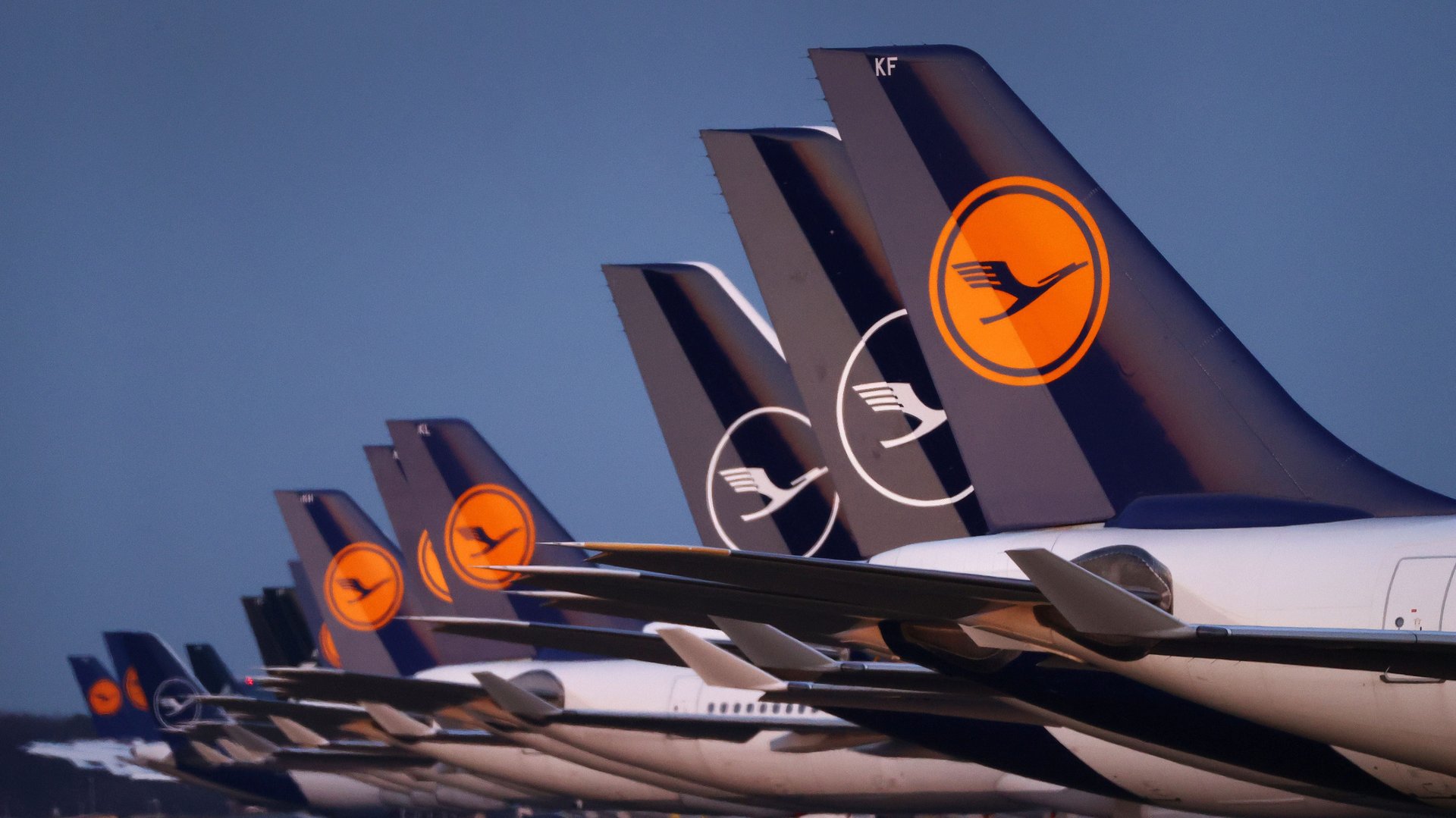Lufthansa’s bailout could be bigger than the market value of British Airways and easyJet combined
European airlines of all sizes have gotten at least some help from their governments. But flag carriers like Lufthansa are in discussions to receive aid that’s on another level.


European airlines of all sizes have gotten at least some help from their governments. But flag carriers like Lufthansa are in discussions to receive aid that’s on another level.
The German airline could receive more than $12 billion worth of government-backed loans and equity stakes. Most of that support is expected to come from the German government, but the Belgian, Swiss, and Austrian authorities may also chip in to prop up Lufthansa fleets that operate in their countries, like Brussels Airlines and Austrian Airlines.
The bailout tab for Lufthansa is running well in excess of the market capitalization of International Airlines Group, the parent company of UK airline British Airways and Spain’s Iberia, among other brands. If that government aid, most of which consists of loans, had been used for an acquisition spree instead, it could have snapped up IAG and low-cost airline easyJet, with cash left over to spare.
Lufthansa is far from alone in getting government support to withstand the pandemic, which has endangered the aviation industry and caused tens of thousands of job losses. Air France-KLM, part owned by the French and Dutch governments, got a bailout of around $11 billion in loans, and Italy is dishing out more than $3 billion to nationalize loss-making domestic airline Alitalia. IAG got more than $1 billion from the Spanish government, and US carriers have been the beneficiaries of a $25 billion bailout consisting of grants and loans.
Low-cost carriers like easyJet and Ryanair haven’t won billion dollar government bailouts, but they have tapped government support. As of June 10, Wizz Air, British Airways, Ryanair, and easyJet had a combined £1.8 billion ($2.3 billion) worth of short-term loans from the Bank of England. Unlike specialized bailouts for the likes of Air France and Lufthansa, the BoE’s lending program is open to any company that does business in the UK that’s considered investment grade.
It remains to be seen whether mega-bailouts for large carriers will be money well spent. It’s vital for a country’s economy to have efficient flight connections with the rest of world. Government support also keeps money flowing to people who work in the aviation industry, keeping unemployment down. The question is whether that government aid is just postponing a deeper, necessary restructuring. If changes to business and leisure travel prove to be longer lasting than expected, then it may have been better to give that bailout directly to workers as they seek out jobs in other industries.